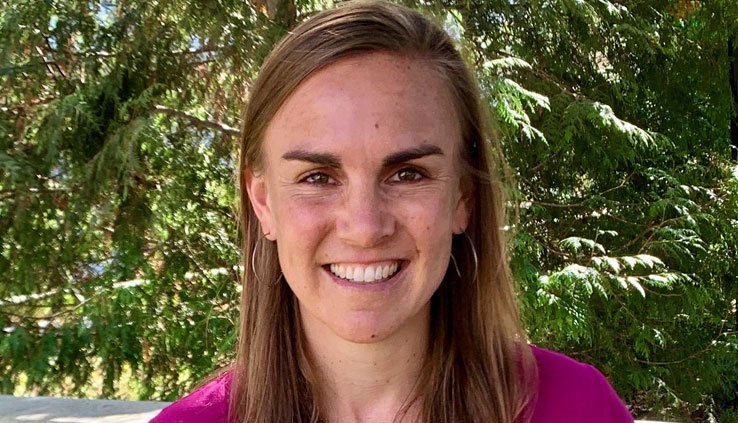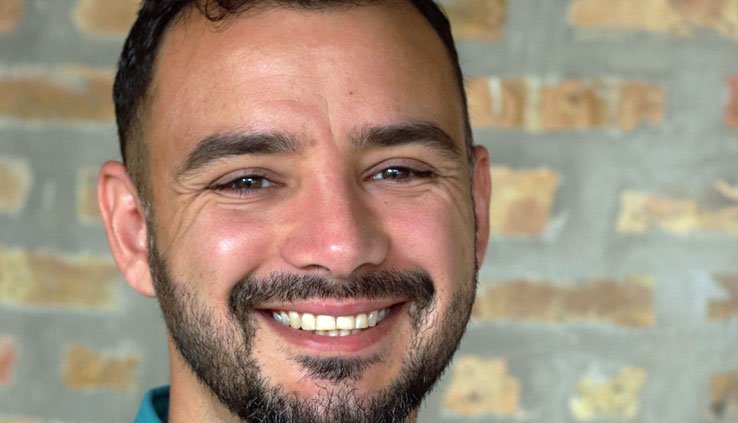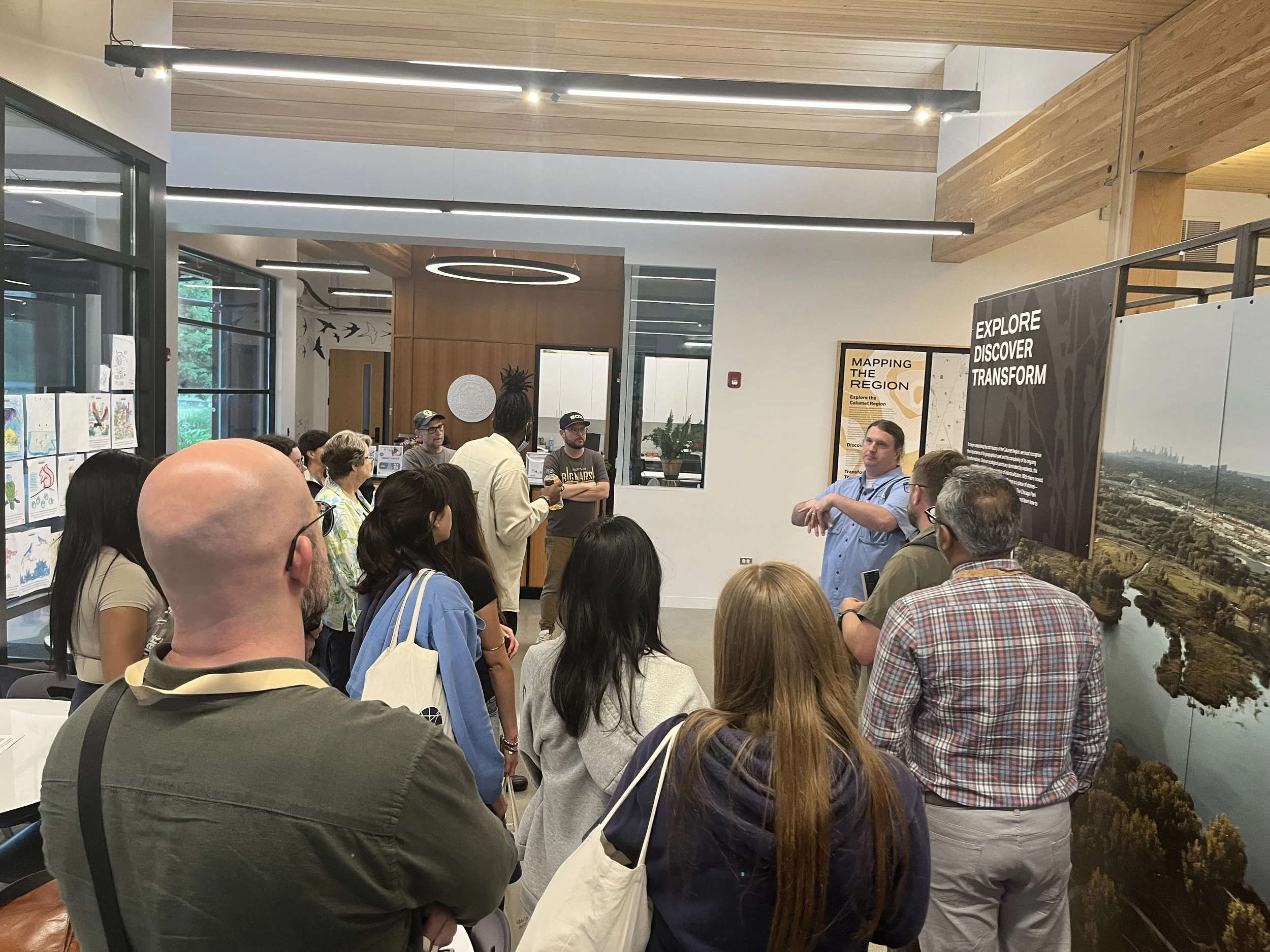Meet the 2023 Biota Awardees
Researchers based in the Chicago region seek to restore, protect and conserve biodiversity locally and around the world
Chicago is a densely populated city surrounded by diverse and rare ecosystems, including remnant prairie, wetlands, and one of the largest bodies of freshwater. While threats to biodiversity in our region are vast, the potential solutions are just as expansive. Researchers in Chicago are uniquely positioned to understand how humans and nature can thrive.
Walder Foundation promotes the long-term sustainability of the natural environment by addressing socio-environmental challenges such as climate, water, food, and health. Through the Biota Awards, the Foundation aims to explore new solutions to restore and preserve our ecosystems.
2023 Biota Awardees
Laura Adamovicz, Ph.D.
Laura Adamovicz, Ph.D.
Research Scientist, University of Illinois Urbana-Champaign
Laura is a veterinary epidemiologist performing field-based, conservation-focused research supporting the wellness of wildlife in Illinois and beyond. She earned a DVM from the Virginia-Maryland Regional College of Veterinary Medicine in 2012 and a Ph.D. in epidemiology from the University of Illinois in 2019.
Laura now works as a Research Scientist at the University of Illinois, where she divides her time between the Veterinary Diagnostic Laboratory and the Wildlife Epidemiology Laboratory. Her responsibilities include developing diagnostic tests for wildlife diseases, conducting field and laboratory studies that promote wildlife health, and mentoring veterinary and graduate students to become successful clinician-scientists.
PROJECT SUMMARY
Development of an Infectious Disease Surveillance Program to Support the Conservation of Chicagoland Turtle Communities
Many species of turtles, including those in Illinois, are declining due to habitat loss, road mortality, overharvesting, and nest predation. In addition to these factors, disease outbreaks can threaten the sustainability of turtle populations and interfere with planned conservation activities. However, the occurrence and severity of diseases in wild turtles are poorly understood, leaving us unprepared to intervene and manage disease threats. Laura’s study will establish an infectious disease surveillance program for freshwater turtle communities in Chicagoland. This will allow researchers to rapidly identify and respond to emerging diseases in both threatened and common species and support the conservation of turtle and wetland biodiversity.
Cara Brook, Ph.D.
Cara Brook, Ph.D.
Assistant Professor, University of Chicago (UChicago)
Cara is an Assistant Professor in the Department of Ecology and Evolution at the University of Chicago. She received her B.S. in Earth Systems from Stanford University in 2010 and her M.Sc. and Ph.D. in Ecology and Evolutionary Biology from Princeton University in 2014 and 2017, respectively. While at Princeton, Cara pioneered a long-term field study in Madagascar, which she still maintains, studying the viral transmission and population viability for three species of threatened endemic Old World Fruit Bats.
From 2017-2020, Cara was a Miller Postdoctoral Fellow at UC Berkeley. In 2020, she was awarded a Loréal USA For Women in Science fellowship and a Branco Weiss Society in Science fellowship.
PROJECT SUMMARY
Harnessing Fruit Bat Conservation to Combat Zoonotic Risk in Madagascar
The Brook lab at the University of Chicago has been studying the dynamics of zoonotic viruses, including SARS-CoV-2-related coronaviruses, circulating in three threatened Madagascar fruit bats since 2013. Cara will conduct a conservation status re-assessment of these species’ population viability in light of accelerated human hunting and investigate the feasibility of habitat restoration to improve fruit bat health and mitigate risks for zoonotic transmission. This work is a collaboration between UChicago, the Field Museum, Madagasikara Voakajy, and the University of Antananarivo. The project expands molecular and quantitative educational programs for Malagasy scientists and trains Chicago-based students in Madagascar fieldwork.
VIDEOS
Michael Grillo, Ph.D.
Michael Grillo, Ph.D.
Assistant Professor, Loyola University
Michael is an Assistant Professor at Loyola University Chicago. The goal of his research is to understand how plants adapt to their environment and how this information can be used to enhance the preservation of biodiversity.
Michael earned his Ph.D. from Michigan State University and then received a postdoctoral fellowship from the National Science Foundation (NSF) to further his training at the University of Illinois at Urbana-Champaign.
At Loyola, Michael has been very involved in training the next generation of STEM teachers. He has a grant from NSF to provide research experiences to pre-service science teachers focusing on urban biodiversity. Michael lives in Chicago and enjoys spending time outside.
PROJECT SUMMARY
Harnessing Native Plant Microbiomes to Enhance the Restoration of Biodiversity in the Chicago Region
Illinois is renowned as the Prairie State. However, today less than 0.1% of Illinois’ native prairie remains. Thus, prairie restoration is a major conservation priority in the Chicago region. One of the major challenges facing restoration is that restored communities do not harbor the same level of biodiversity as native remnant prairies. This proposal seeks to assess the role of key plant microbiome interactions in remnant and restored communities and how microbiome inoculations can enhance native plant diversity in restored habitats. For this work, Michael will integrate greenhouse experiments with field studies in the local forest preserves and provide research experiences for Chicago Public School teachers.
Maureen Murray, Ph.D.
Maureen Murray, Ph.D.
Wildlife Disease Ecologist, Lincoln Park Zoo
Maureen has been the Wildlife Disease Ecologist at Lincoln Park Zoo’s Urban Wildlife Institute since 2017. Her research focuses on how living in cities can affect the health of wildlife, ultimately affecting people's health and our shared urban ecosystems. Her goal is to use applied interdisciplinary research to prevent negative human-wildlife interactions and the spread of disease to protect both urban biodiversity and public health.
Maureen completed her Ph.D. in urban coyote ecology and has studied various species, including rats, wading birds, and grizzly bears. More recently, she is excited to study urban humans’ experiences with wildlife and well-being.
PROJECT SUMMARY
Maximizing the Health and Biodiversity Benefits of Chicago’s Community Gardens
Community gardens benefit public health and urban biodiversity, but rat infestations in and around gardens can be challenging. Evidence-based recommendations for rodent prevention are essential, but there has been no research on rats in community gardens. In this project, Maureen is partnering with NeighborSpace and the Chicago Park District to identify which garden features and policies are associated with rats, beneficial insects, and birds. Using these results, Maureen will create workshops to provide gardeners with the tools to prevent rat infestations while increasing urban biodiversity. This project will help support community gardens to develop healthy and biodiverse spaces in Chicago and cities around the world.
https://www.lpzoo.org/experts/maureen-murray2/
https://www.lpzoo.org/conservation-science/science-centers/urban-wildlife-institute/
Weston Testo, Ph.D.
Weston Testo, Ph.D.
Assistant Curator of Pteridophytes, Field Museum of Natural History
Weston developed a love for nature early in life, spending his childhood fishing and exploring the forests and wetlands near his family’s small farm in rural upstate New York. As an undergraduate student at Colgate University, Weston spent his summers in Costa Rica, working as a research assistant on various projects and becoming fascinated with tropical plants.
Those experiences led him to pursue a Ph.D. in plant biology at the University of Vermont. Weston became a postdoctoral researcher at the University of Florida and the University of Gothenburg, Sweden. As Assistant Curator of Pteridophytes at the Field Museum, he pursues various research activities, mostly focusing on plant diversity and conservation in the Caribbean and South America.
PROJECT SUMMARY
Documenting Diversity Amidst a Mass Extinction: Generating a Conservation Framework for the Flora of Hispaniola
Human activities threaten biodiversity around the globe, but tropical islands, which are small and home to many rare species, are especially imperiled. Hispaniola, the island shared by Haiti and the Dominican Republic, is so threatened by deforestation that many plants and animals living there are likely on the verge of extinction. Despite this, little is known about many of the island’s species, including their distributions and conservation status. This work aims to protect Hispaniola’s rarest plant species by assessing population declines over the last century, establishing a plant conservation network, identifying conservation priority areas, and conservation capacity-building activities both in Hispaniola and the Chicago region.
Get more stories like this delivered to your inbox.
Sign up with your email address to receive news and updates.
















